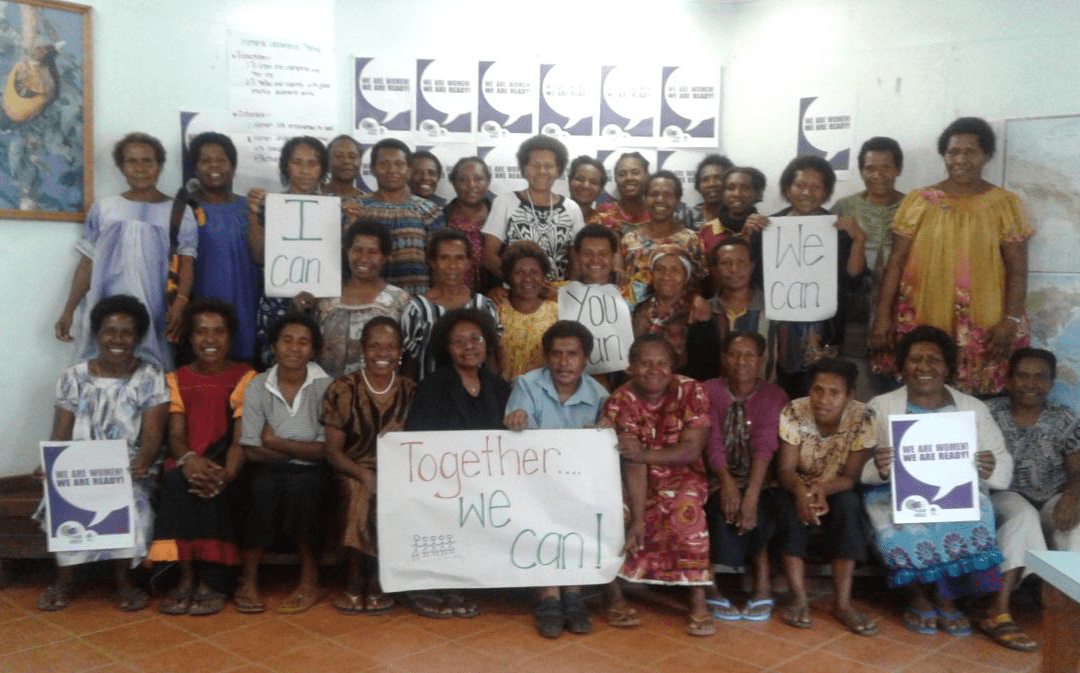Jean Jen Jano is from Fayantina LLG in the Eastern Highlands Province. She is a member of the senior management team at Eastern Highlands Family Voice and dedicated to the elimination of all forms of violence perpetrated against women and girls. Her professional portfolio includes managing the activities for EHFV’s gender empowerment, women’s economic empowerment, child protection, and justice and rehabilitation programmes.
In 2012, Jean earned an Australia Awards scholarship which led to a Diploma in Leaders and Management (DiLM). She explains, “The qualification increased my ability to advocate for the issues I hold dear. It provided me with the knowledge and tools needed to face the daily challenges of working on the frontline and empowered me as a female leader.”
Ever diligent, she promotes awareness of violence against women and girls and other cultural and gender-related issues. “Communities need more information on the laws and policies in place. Everyone must accept their responsibility to act against gender-based violence (GBV) and seek justice for women and children who are victims,” she says. Noting that legislation and conventions exist, Jean finds the real issue in implementation and enforcement. “To change the status quo, we need coordinated approaches by all service providers and stakeholders, standardised referral pathways for victims, more support and resources, and sensitisation for all GBV and family and sexual violence (FSV) service providers.”
Studying for her DiLM opened her mind, allowing her to clearly see that without a unified effort from people, from the family unit to the national government, these issues she works to combat will continue to plague the country.
Jean knows as a local NGO, they can only reach a portion of the people affected by GBV and FSV. “In an average week, an EHFV counsellor will see 30 clients helping people work through issues such as desertion, neglect, adultery, domestic violence, child abuse, and FSV. Through our community engagement activities, we can reach up to 400 people a month or as many as 800 people if it is a public event,” she states. The school programmes engage 500-600 students addressing issues like child abuse, bullying, corporal punishment, peer pressure, and teenage pregnancy.
Just because they are small, don’t count them out. She proudly recounts how men from rural communities are standing up to condemn violence perpetrated against women and girls in their community. In her region, these proactive men formed MAGE – Male Advocates for Gender Equality. She also draws attention to the two communities who gave land for the establishment of a rural Meri Seif Haus in the Lufa District as well as a resource centre for people with disabilities in the Unggai Bena District.
“We are all born with the same human rights regardless of our differences. Men and women are equal—both must contribute to creating balance in the household, workplace, and society. The family is the foundation of our culture and country. If families respect, trust each other and live in harmony it will be reflected in the community, ward, LLG, district, province and nation. Children raised in families sensitive to GBV and FSV will become pillars of our society. They will speak out and stand up for what is right and just,” she concludes
